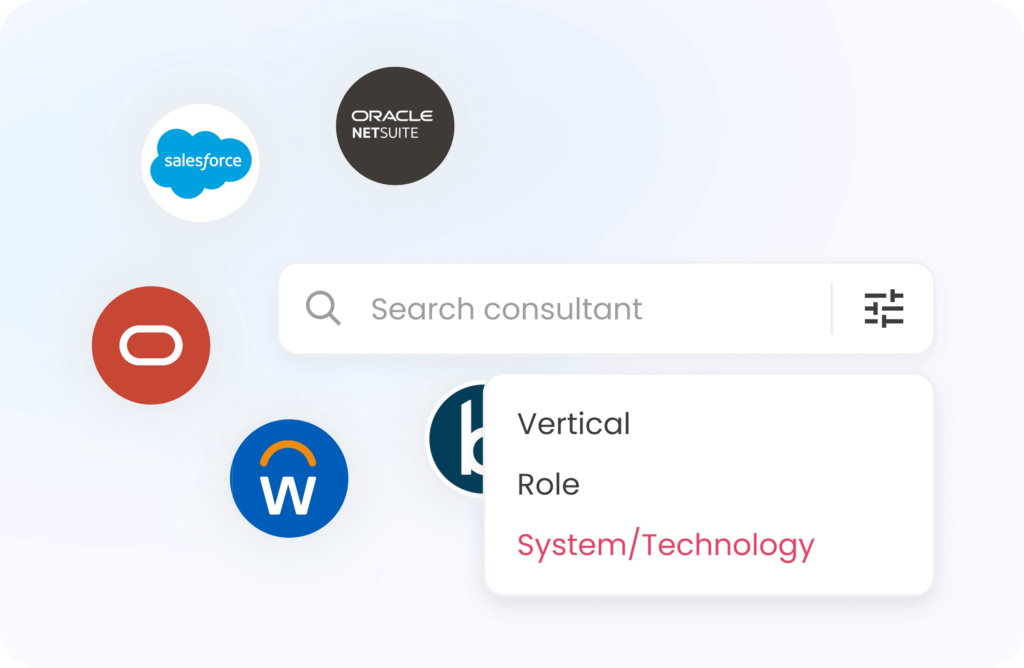In this article, we will provide a few points for you to consider in order to enhance your knowledge in inventory management.
Controlling inventory is frequently mentioned as being essential to a company’s success. You can rationalize your inventory to cut costs and maximize income and profits. Even though your business may be smaller, the process of inventory management is still quite complex.
Well managed inventory starts with accurate, error-free and obtainable data about your inventory. But how much do you actually know about it?
This blog goes into great length on the value of inventory management and the numerous strategies that are available within NetSuite Inventory Management.
PREVIOUS POST — Automated Intercompany Eliminations: Simplify Your Close Process with NetSuite
NetSuite Inventory Management Best Practices for 2023
The world is evolving at a rapid rate. Businesses are having a hard time to keep up. It’s a much more dynamic environment now, where data analysis is very important as it helps businesses a lot, NetSuiteinventory management helps you with gaining a deeper understanding of your clients, better sales, enhancing clients targeting, lower costs and enables the development of better problem solving strategies.
By using NetSuite, customers can benefit from reliable and efficient shipping. NetSuite Inventory Management reduces manual processes by automatically monitoring inventory levels. It allows you to predefine execution rules to eliminate multiple shipments for a single order and avoid overage shipping costs.
RELATED POST — Simple Guide to NetSuite Grid Order Management
It will solve your problems such as; inefficient utilization, inaccurate planning and excessive handing. NetSuite provides benefits like decreasing charges of goods sold, optimizing inventory levels and increasing profitability.
Some of the best practices for 2023 by NetSuite Inventory Management are:
- Establishing Key Performance Indicators
- Creating an inventory receipt strategy
- Establishing strong relations with suppliers
- Calculating minimum stockholding limits
- Investing in an inventory management system
What is Inventory Management?
Inventory management helps businesses in determining which stock to order when and in what quantities. Inventory is tracked from purchase process to sale. To guarantee there is always enough inventory to fulfil client requests and proper notice of a shortage, the technique recognizes patterns and responds to them.
A company’s health depends on effective inventory management since it lowers the risk of stockouts and inaccurate records by ensuring that there is rarely too much or too little stock on hand. NetSuite inventory management’s goal is to have the right products in the right place at the right time.
Let’s explain it with an example:
A soap manufacturer has previously created a batch of soaps to dispatch to different points of sale. Given the high consumption of soaps, it reorders raw materials to start manufacturing the next batch.
Raw materials ordered beforehand, in this case, act as the inventory for the company. And the already delivered finished products are the inventory for retail units that will be selling soaps further.
Pre-ordering raw materials helps the company produce and supply soaps regularly to ensure the lead time does not keep customers waiting or making them switch to its competitor’s soap.
What is an Inventory Management System?
An inventory management system incorporates many software programs to keep track of stock levels and stock movements. The solution can integrate with multichannel sales platforms or shipping systems.
An inventory management system optimizes inventory levels and ensures product availability across multiple channels. It offers a single, real-time view of all products, stock, and orders across all locations and sales channels. This enables businesses to carry less inventory on hand and frees up cash to be used in other parts of the business. In order to meet customer expectations while minimizing inventory costs, an inventory management system is used.
RECOMMENDED POST — NetSuite SuiteBilling – Billing the way you want it
Inventory management software is used to track items and parts while they’re transferred from seller to a warehouse, through warehouses and eventually at a retail outlet or straight to a consumer. This software provides numerous benefits in a business setting:
- Inventory management software helps businesses cut expenses by lowering the quantity of insignificant parts and products in storage.
- Using inventory management software is time saving, cost saving and also increases business efficiency.
- Helps in the organization of warehouses. It leads to a new focus on enhancing mix and accelerating inventory turns.
- Inventory management software is a best source of updated data.
- Provides data security.
NetSuite Inventory Management system gives inventory managers advantage of software solutions to automate the workflow. It helps you allocate resources more efficiently. Inventory management system get product to customers in shorter and shorter amounts of time without creating back-office burden.
Does NetSuite have an Inventory Management System?
A system for managing inventories is available in NetSuite. Businesses can use it to reduce inventory to free up cash while preventing backorders because it offers a distinct, real-time view of inventory across all locations and sales channels.
NetSuite provides many features such as:
- It enables the users to configure multiple units of measure.
- It allows to have multiple locations for storing inventory and provides real time location-wise reporting.
- It allows to use Bins, an inventory feature to track the location of your inventory within your warehouse.
- Assembly Items is another feature that NetSuite provides. They are individual items that are made up of multiple components. If a product requires complete traceability of the components used—where they came from and where the final product went—Selecting this feature will ensure that traceability is strictly maintained.
- The final key feature NetSuite provide is Kits and Packages, they are units composed of individual items sold together.
NEXT POST — OdeCloud Aiming to Become Leader in NetSuite-Related Content
NetSuite ensures that you have the right amount of stock. In NetSuite, managing inventory is way more efficient. It also reduces handling expenses and shipping charges. It allows companies of any type to manage their entire business applications in one single system. It handles every need of worldwide businesses that use different languages, currencies, reporting necessities and tax laws.
NetSuite is more than just a financial management system. It gathers all core business functions. This platform is a single solution for all areas of business. Its automated and streamlined processes; instantly gather and submit accurate data in real time; and manage inventory and supply chain changes on the fly.
It provides Unlimited Inventory Visibility: Real-time, company-wide inventory visibility — across warehouses, retail stores, pop-up shops, drop shippers, 3PLs or any other place where you manage or stock inventory — key to enabling a buy anywhere, fulfill anywhere customer experience.
How to select the right NetSuite Inventory Management System?
For many small and mid-sized businesses, their so-called stock management is not much of a system at all, but a combination of unskilled and inefficient data exports. Improved and optimized inventory not only reduces costs and increase process efficiencies, but it can be a launching pad for differentiated customer experiences.
NetSuite Inventory Management provides the benefits of cloud inventory management and with it, the ability to achieve end-to-end visibility of inventory to do everything from the reliable promise of goods to streamlining logistics in a way that rivals much larger companies.
PREVIOUS POST — How to Setup NetSuite Billing Schedules
NetSuite provides out of the box functionality for core processes and it is flexible enough to manage, customize and configure to your business’s exclusive processes. It has more refined features that will balance with inventory management needs. NetSuite is more than just a financial management system now. The three most important considerations while choosing an inventory management system are:
Inventory Management business problem
What problems is your business facing? The problem could be stock management, frequent overstock, replenishment of stock, not able to efficiently itemized stock into reserve inventory or lacking of visibility through various warehouse locations. Knowing your business’s problem will definitely ease the process of finding vendors that can achieve those features and functionality needs.
Integrating Inventory Management
An integrated method to inventory management confirms precise data across systems and offers a window to assess trends and business efficiencies.
Right Technology Partner
The right technology partner will bundle the training capabilities with the software and selecting software that is easy to use and understand, helps to lower the barrier in entry from the beginning.
By acknowledging business problems, clients and users, choosing inventory management software is not as overwhelming as it seems.
RELATED POST — NetSuite ERP: The Ultimate Business Management Solution
What are the best Practices for NetSuite Inventory Management?
Many CRM software are choosing NetSuite for thousands of businesses around the globe. Our experience with NetSuite is incredible. It’s instinctive and rich functionalities makes it ideal for almost all kind of businesses. It provides customer management, sales forecasting, time tracking, campaign management, email marketing, incentive compensation, opportunity management, lead management, real time dashboards and real analytics.
NetSuite gives you the visibility and control to make right decisions, it provides you the capacity to lead operational change in your businesses. With easy personalization and connectivity for third-party partners, you can constantly enhance your operations and cut cost in your day to day operations.
OdeCloud will help its clients position themselves to success by providing exceptional independent NetSuite consultants. We help our freelance consultants improve their skills with our strong community of like-minded experts and exclusive technology, while cutting costs, risks and efforts for companies looking to hire top talent. We will curate and organize your businesses.
RECOMMENDED POST — NetSuite Order Management: Superior Customer Experiences
We will ensure your project success with our performance-oriented matching technology. We provide a fully managed freelance service to ensure projects are delivered efficiently and consistently. We have skilled individuals that are self-sufficient, who you can depend on to bring your A-game.
The most experienced NetSuite consultants are increasingly opting for freelance work, our platform meets their requirements by offering them the best talent options for crucial NetSuite projects. We provide you technology powered talent solution to optimize your NetSuite platform ultimately helping your business grow. OdeCloud brings the core focus on value to NetSuite consultation.
Why companies in rapid growth choose OdeCloud?
Our collective intelligence and collaboration SaaS allows you to move projects faster. We provide evolutionary expertise through platform-level collaboration and collective intelligence. We run by agile talent pool to help speed up the company’s critical technology projects. We offer seamless pricing and flexible plans to fit your budget and talent requirements.
Benefits we provide
Our approval process is based on actual project data, with feedback from customers and peers we find you the perfect fit. Our technology makes it possible for NetSuite consultants to learn quickly, crowdsource solutions and solve problems with hundreds of experts sharing the same idea. We provide great visibility. You can eliminate long email chains where tasks get lost and time is wasted, we have made everything dead simple.
NEXT POST — NetSuite Inventory Management: A Comprehensive Guide
We provide you all type of customer interactions that includes sales history shipping status and many more, which means you can create a profile for each client and serve them better. We provide you with real-time data you need to plan your sales. You can also track the time your staff spend on individual interactions with incredible precision, you can better understand the value of each client.
How to get your work done?
Talk about the objectives you want to achieve with your NetSuite system. Get the best assortment for your work and take advantage of our flexible service plans. Get a talent management department that includes executing and delivering projects.
Preparing your Inventory Management System for 2023
If you are looking for an efficient and complete means of managing your NetSuite inventory, OdeCloud NetSuite professionals are here for you. Our team can provide you with a personalized solution to meet your specific requirements. We will work with you to build an effective and user-friendly system. As a result, you can concentrate on your business objectives.
PREVIOUS POST — FAQ: 10 Things To Know About Inventory Management In NetSuite
Our organized community of hundreds of NetSuite approved consultants and software partners work coherently to provide the best result for your business. We offer a talent market, digital workspace and machine learning community for independent technology consultants and world class business looking hire to them. We will help businesses to keep their inventory costs low.
We provide lot tracking and expiration date tracking, which will help businesses to keep track of their inventory, so they what they need and when they need it. We help businesses save their money and ensure product availability, because we are providing businesses a complete view of their supply chain, from raw materials to final products, so that they can plan their production more efficiently and make sure that the products are available when customers need them.






